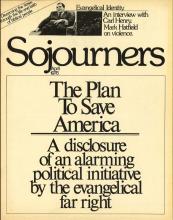Paul told the Christians at Rome, beset with divisive quarrels, “Let us therefore cease judging one another, but rather make this simple judgment: that no obstacle or stumbling-block be placed in a brother’s way ... Let us then pursue the things that make for peace and build up the common life” (Romans 14:13, 19).
During the past weeks we have wrestled with the meaning of these words. The easy option is to pretend that they mean we are simply not to share our differences or misgivings about the convictions or conduct fellow Christians. Yet the record of the New Testament and its history of the early church seem to prohibit such an interpretation.
Paul’s epistles are full of strong exhortations given to other believers. His way was not to withhold his reservations about the understanding and application of the gospel evidenced by others in the fellowship. Yet, even his harshest words of criticism always came out of a true and deep pastoral concern to “build up the common life.” Thus, admonishing one another in the fellowship was done in the context of love, out of the deepest concern for the spiritual maturity of the whole body of Christ.
Christ cautioned his disciples in the Sermon on the Mount against passing judgment on another, telling us to look first to “take the plank out of your own eye, and then you will see clearly to take the speck out of your brother’s.” We are to extend unconditional love toward even our enemies, for that is God’s nature and we are his children. But here again, such agape-love is rooted in Christ’s unlimited forgiveness, not in naive blindness. Christ’s words to the scribes and Pharisees, his encounters with the woman at the well, the rich young ruler, Zacchaeus, and others, make clear that his love functions not by suppressing truth, but by facing it squarely so that forgiveness and healing can occur.
Read the Full Article

